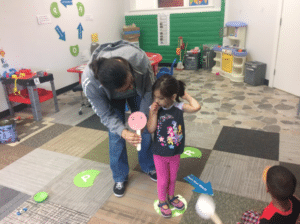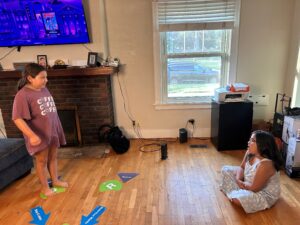
Why Compassionate Accountability® Isn’t Just for the Workplace
Share viaCompassionate Accountability is often framed as a workplace strategy—the process of building connection while getting results. But what if we started teaching this skill much earlier? What if Compassionate Accountability wasn’t just something we practiced in our professional lives, but was a core part of our early education?
The Case for Compassionate Accountability in Schools
The modern world presents young people with more emotional and social challenges than ever before. From navigating peer pressure to dealing with social media, children today face situations that require emotional resilience, empathy, and a strong sense of personal responsibility. That’s where Compassionate Accountability comes in—not just as a tool for conflict resolution, but as a vital life skill.
Did you know, our outcomes research shows that adults going through our programs in their workplace report significant improvements in personal relationships outside of work?
At its core, Compassionate Accountability teaches that we can hold others accountable without sacrificing kindness. It’s about using our Compassion Mindset to address conflicts head-on while understanding and validating the emotions behind them. Imagine if children learned from a young age that they could disagree with someone without animosity, and that every conflict offers an opportunity for growth. Teaching this skill early on could dramatically reshape the way future generations handle both personal and social challenges.
Check out our new Compassion Mindset eCourse!
Conflict as a Healthy Part of Development
Conflict is a natural part of life. It’s not inherently bad—it’s simply a difference in views, opinions, or standards. Teaching kids that conflict is okay, and that it can be worked through using compassion and accountability at the same time, helps them develop healthier attitudes and relationships.
When children understand that conflict doesn’t need to be feared or avoided, they can face it head-on with confidence. They can learn that resolving disagreements in a way that respects both parties’ needs leads to win-win outcomes, rather than creating long-term resentment or anxiety. This shift in perspective is critical for helping young people grow into emotionally intelligent adults who can handle challenges with grace.
Mental Health and Social Skills: The Long-Term Impact
One of the most powerful benefits of teaching Compassionate Accountability from a young age is its positive impact on mental health. When children learn how to navigate conflicts and challenging social interactions in a supportive, emotionally safe environment, they experience less anxiety and stress. Instead of fearing confrontation, they gain confidence in their ability to navigate difficult situations.
One of our Compassionate Accountability trainers, Jason Leal, and his wife founded an early childhood daycare. At Brightstar Academy they teach young children how to use our ORPO conflict template to deal with everyday conflicts. It is remarkable seeing children handle conflict in productive ways.

Jason doesn’t stop there. He and his wife have made ORPO a daily part of their family check-ins with their daughters.

This approach also fosters essential social skills. By recognizing that everyone has different perspectives, children develop respect for others—one of the key traits in building meaningful relationships. In the long term, this reduces bullying, encourages open communication, and creates more emotionally resilient individuals.
How Schools Can Teach Compassionate Accountability
Introducing Compassionate Accountability into schools doesn’t have to be complicated. It can be integrated into existing programs focused on emotional intelligence, conflict resolution, and social development. For example:
- Role-Playing Exercises: Children could engage in scenarios where they must resolve conflicts using compassion, learning to empathize with their peers while taking responsibility for their actions.
- Peer Mediation Programs: Schools could develop peer mediation programs where students help facilitate conflict resolution, practicing Compassionate Accountability in real-life situations.
- Curriculum Integration: It can be incorporated into subjects that teach social-emotional learning, where students are encouraged to navigate interpersonal challenges with compassion and accountability. This approach would help them understand how to address conflicts constructively while maintaining accountability for their actions and decisions
By normalizing these practices, we would equip young people with the skills needed to thrive emotionally and socially, both in school and later in their professional and personal lives.
A Future Built on Compassion and Accountability
As we think about preparing young people for the future, teaching them that compassion and accountability are inseparable should be a priority. These two elements are not balanced—they are fundamentally interconnected. You cannot have true compassion without accountability, nor accountability without compassion. It’s not just a workplace skill—it’s a life skill. By fostering this mindset early on, we can help reduce anxiety disorders, encourage healthy conflict resolution, and build a generation that understands the power of kindness and responsibility as one unified approach to relationships and personal growth.
Let’s rethink how we view Compassionate Accountability and recognize its potential to create healthier, happier individuals from the very beginning of their lives.
What do you think? Is there a place for Compassionate Accountability in education?
We’d love to hear your thoughts on this subject. You can drop us a message here.
Check out our new Compassion Mindset eCourse!
Book Your Next Keynote Speaker

Author and Co-founder of Next Element, Dr. Nate Regier is available to speak at your upcoming event.
Submit a Speaker RequestListen to Nate on The Compassionate Accountability Podcast
 Listen to the Podcast
Listen to the Podcast

0 Comments
Add comment